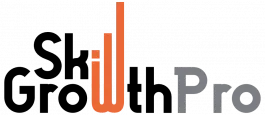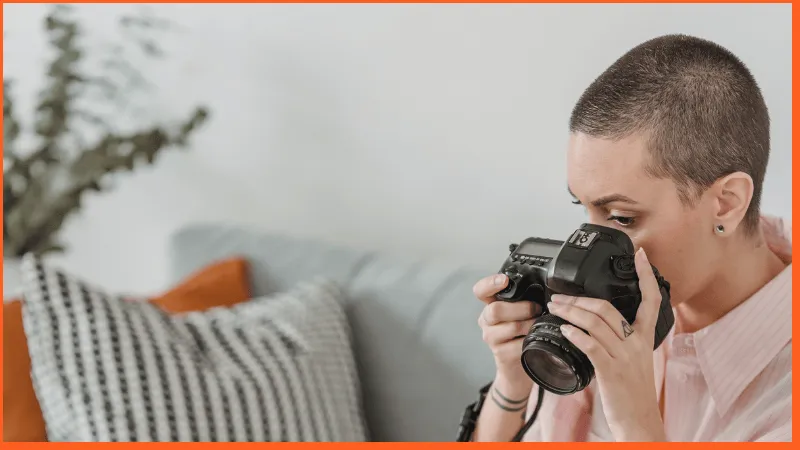Coaching can be a quick way to see improvements in your game. Nothing beats having good feedback from a person wagging a finger at your bad golf swing.
But, coaches at what you might like to improve in are either:
- Unavailable (have you found a curling coach online yet?)
- Pricey
In these situations, you might be able to get away with not having a coach. A DIY approach to your skill-honing can give you an added sense of accomplishment if you reach mastery.
Does this sound good? Keep reading!
Here’s How to Get Better without a Coach:
To get better without a coach, you’ll have to invest some serious time attending good old Youtube University. Joking aside, you can improve and learn any skill or hobby by consuming online content these days. Then the biggest key is getting out there and practicing the craft with the help of the plan you can create from that online content.
Table of Contents

You may not have the luxury of a whistle-blowing sweatsuit-rocking coach. Nonetheless, the internet has given the world access to online tutorials and how-tos.
Many of these are free, but if you’re willing to pay just a bit extra, there are some paid services as well.
There are many more options available through searches. To cut things short, online resources are never in short supply. However, for some, resource availability isn’t the main issue.
We’d all rather spend time on a beanbag instead of on the treadmill or in our garage gyms.
To address the elephant in the room, let’s talk about self-motivation.
Recommended Reading: Can you learn without a teacher?
Self-Motivation
Navy SEALs undergo a lot during Basic Underwater Demolition (BUD) training, to say the least. Many who quit are often overwhelmed by the number of tasks and “evolutions” that happen for months.
Those who stay and graduate have learned to develop a habit of “keeping the world small.” This involves prioritizing the most manageable and achievable tasks.
For many SEALs, it can be anything, even something small like making the bed first thing in the morning. Other times, it may involve doing a few pullups before leaving the barracks.
The point is to focus on the simple and quickly achievable tasks first. In your self-coaching journey, it can mean focusing on the easy-to-achieve foundations of your sport.
For instance, getting your first pullup involves strength that you’d have to develop for months. The immediately achievable part of the move you can learn is hanging for three seconds from a bar.
Achieving this goal will lead to one of two thoughts:
- “That wasn’t so tough. I’ll do it again tomorrow.”
- “That was easy. I’ll hold on for four seconds.”
Either way, you’ll be feeding habits and progressing into your lifestyle. Before you know it, you’ll be giving yourself a reason to train without feeling overwhelmed.
Recommended Reading: Is being self taught good?
Planning
Teachers and coaches plan their classes or sessions. And, if you’re coaching yourself, so should you.
What you need to plan for includes:
- Equipment
- When to train
- What activities to perform
- How to measure your progress
- When to back off (you need rest too, young grasshopper)
Equipment is crucial. This includes your training environment. Whether you’ve got a living room or access to your local track, where you train can make a difference depending on the skill you wish to master.
Your access to equipment and the right training environment will also determine how often you’ll be able to practice. And, since we’re on the subject of time, you’ll also have to make room for rest days and when you can let your hair down.
Most importantly, your training plan needs to include the activities or workouts you perform and how to measure progress. You can figure out which exercises or workouts to complete during your research online. When it comes to progress, it can either be long-term or short-term. You’ll need short-term goals to contribute to your achievement of the one you have long-term.
For instance, set a goal of doing 2 pullups every day if you’re working towards a top set of 15 after two months.
Studying
Thanks to the internet, you have no shortage of resources at your disposal. So, availability isn’t going to be an issue.
Also, a lot of online content is easy to consume since the content is typically tailored to be relatively short. This means you can fit in some “studying” even if you have a busy schedule.
The availability of information is both a boon and bane. Sure, you’ve got a lot of resources to choose from. This is where you can get analysis paralysis, though.
An easy way to prevent this is to choose three you want to look at and stick with only those three. This way, you don’t need to make more decisions about resources. Training is hard enough.
Practicing/Training
Actually getting out there and performing your hobby or sport will help you get better. To train smart, you’ll have to address your weaknesses and basics first.
Practice What Will Bring You the Most Value
What you train will depend on what your weaknesses are.
Training your weaknesses involves identifying where you aren’t proficient. For any athlete, this step is crucial. Once you’ve identified your weak points, you’ll be able to determine where you need to allocate your training resources.
Once you’ve done that, you can proceed with working on improving this area. This can be very challenging, as it may not be the most fun thing to continue doing something you aren’t particularly good at. However, over time, you will start seeing progress, and this is a gratifying feeling. It will also be one of the ways to see the most improvement.
In sports or any hobby, one tip has stood the test of time: Master the basics.
The basics of any sport, skill, or hobby are the foundations for the details. Once you’ve mastered the foundations, your body and mind will be better equipped for the finer details.
For example, if you’re getting into weightlifting, the basics can include bar position and good lifting technique. Focus on these two details, and you’ll be better able to handle the weight as time goes by.
Keep Going!
Using the strategies mentioned above will help you improve your hobby or sport even without a coach. With so much information so readily available nowadays, it’s possible to create a plan to improve all by yourself.
Still, there is real value in having a coach by your side. They have experience in their field, can help you stay motivated, and create an individualized plan specifically suited to helping you improve.
So if you have the chance to work with a coach, consider doing so. The strategies mentioned above can still be combined with a coach to further help you improve even more.
In closing, the not-so-secret method to continue to improve is to keep working on your skills. All experts and professionals were beginners at first. They just kept working on their craft and eventually became specialists in their fields.
Keep your long-term goals in mind and keep going!
Recommended Reading: How to improve your general knowledge!




